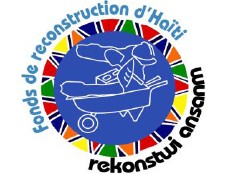Haitian All-Starz
The Best Representation of Haitian Entertainment, Culture, & LifeStyle
Reconstruction : Update on the Haiti Reconstruction Fund (Fall 2011)
 |
As at September 30, 2011, nineteen donors have committed to contribute US$352 million to the HRF. Of this over 95% of funds or US$335 million has been received by the HRF Trustee.
At the request of the IHRC, the HRF Steering Committee has allocated US$267.08 million of available funds for 15 projects. In addition US$2.98 million was approved to cover the Trustee and Secretariat budgets for 2010 and 2011. Including the reserve set aside for future project approvals, US$65.86 million remains available for allocation. Based on Steering Committee decisions US$40 million of available funds has been reserved for the Artibonite Dam and US$7.5 million for budget support, leaving US$18.35 million available for new funding allocations.
Of the US$267.08 million in project funds allocated, 94% or US$252.08 million has already been transferred to the respective Partner Entity. The United Nations serves as Partner Entity for nine out of the fifteen approved projects, representing 47% of total project funds allocated. The World Bank and the Inter-American Development Bank each supervise three projects, representing respectively 39% and 14% of project funding approved.
Twelve projects have already started implementation with total project-level disbursements at US$39 million, representing 15% of total funds approved for projects. The World Bank has disbursed 24% of project funds allocated, the UN 11% and the IDB has not yet disbursed HRF funds.
The donor contributions to the HRF represent 18% of total funds disbursed for the reconstruction of Haiti as of September 2011. The HRF funding has been a significant source of flexible financing to respond to government priorities and to finance activities in underfunded sectors. Most notably, the HRF has contributed 92% of the funding for IHRC-approved projects in debris removal and management. Despite debris removal being a key sector for the reconstruction, insufficient funding had been made available through bilateral or multilateral sources for this sector.
To date, on average the total grant approval process takes 106 days from submission of the project concept note by the IHRC to the transfer of funds by the Trustee to the Partner Entity. Almost half of this time is used for the preparation of the full project document following the approval of the project concept note.
The HRF is a low-cost efficient mechanism with only 0.8% of total funds committed being used to cover the HRF Secretariat and Trustee administrative budgets.
HL/ HaitiLibre
Social Network
All-StarZ TV
Events
Birthdays
Birthdays Tomorrow
© 2026 Created by Haitian All-Starz.
Powered by
![]()
 Haitian Gourde Converter
Haitian Gourde Converter



You need to be a member of Haitian All-Starz to add comments!
Join Haitian All-Starz